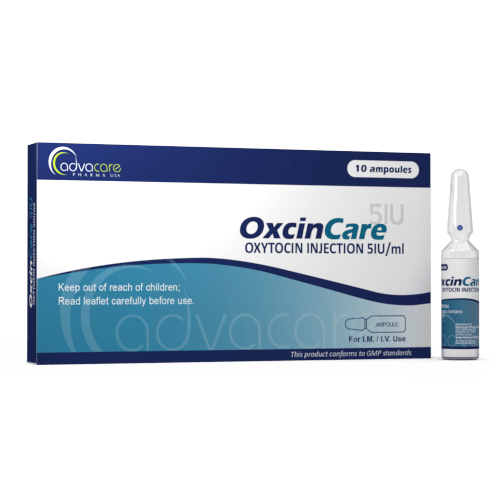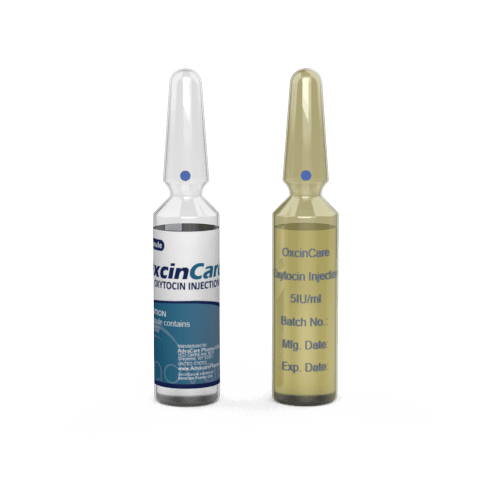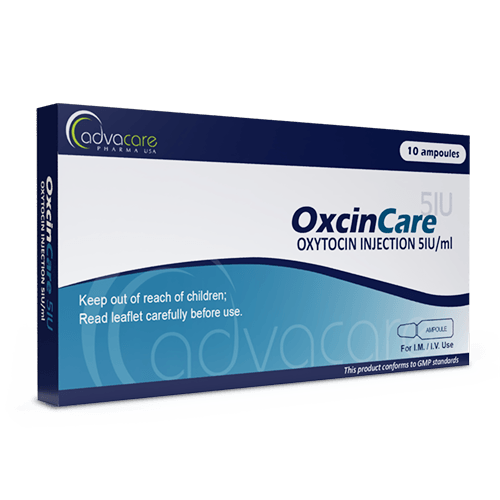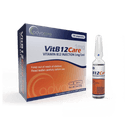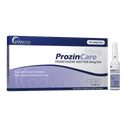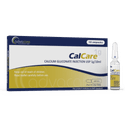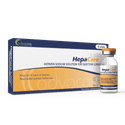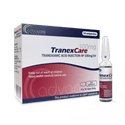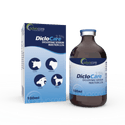- Home›
- Pharmaceuticals›
- Injections›
- Small Volume Injections›
- Oxytocin Injection
Oxytocin Injection
Dosage
Packaging
What is Oxytocin?
Active Ingredients: Oxytocin
Oxytocin Injection is used to induce labor, strengthen uterine contractions, and speed up delivery of the placenta. It may also be used to prevent or treat postpartum hemorrhage. Oxytocin is used in combination with other drugs to stimulate uterine contractions in women with incomplete or threatened miscarriages.
Oxytocin is an oxytocic hormone. It works by binding to the oxytocin receptors within the myometrium. This action increases intracellular calcium, which stimulates uterine contractions.
AdvaCare Pharma is a global distributor and manufacturer of Oxytocin Injections. This drug is produced in our GMP-certified facilities in China, India, and the USA. Our production facilities are regularly inspected to ensure our products meet health, safety, and environmental standards.
Why are we a leading Oxytocin manufacturer?
AdvaCare Pharma is an American-owned pharmaceutical company that specializes in the manufacture of Oxytocin Injection and 120+ other quality-assured injectable medications for the worldwide market. Over the past twenty years, we've built our reputation on reliable, efficacious, and affordable medical products and custom-tailored marketing plans to meet regional demands. Our status as a trusted Oxytocin manufacturer is backed by medical distributors, doctors and patients who rely on our injectable treatments.
Uses
What is Oxytocin used for?
It is used to:
- induce labor
- strengthen contractions during childbirth
- control bleeding after delivery
- induce abortion
How are Oxytocin Injections used?
This medication is manufactured as a solution intended to be given by injection into a muscle. It should be administered by a healthcare professional in a hospital or clinic setting.
What dose should be given?
The usual dose for adults is 0.5-1mU per minute.
Refer to a doctor or pharmacist for guidelines on dosage. Do not exceed what they advise.
Side Effects
As with all pharmaceuticals, some unwanted effects can occur from the use of Oxytocin Injection.
Common side effects include, but may not be limited to:
- vomiting
- nausea
- headache
- slow or fast heartbeat
- skin rashes
Serious side effects may include:
- signs of an allergic reaction
- changes in heart rate
- excessive, prolonged bleeding
- migraine
- confusion or disorientation
For a comprehensive understanding of all potential side effects, consult a medical professional.
If any symptoms persist or worsen, or you notice any other symptoms, please call your doctor.
Precautions
Do NOT use Oxytocin Injection if:
- You have been given a vaginal prostaglandin in the previous six hours.
- You have unusually strong uterine contractions.
- You have an obstruction that would prevent vaginal delivery.
- You have any of the following: a scar in the womb, placenta praevia, the baby is in the wrong position, or when vaginal delivery is considered impossible.
- You have serious heart or circulation problems.
Before treatment, consult your doctor regarding any medications you are taking to address potential drug interactions.
This medication may not be suitable for people with certain conditions, so it is important to consult with a doctor if you have any health conditions.

You might be interested in...
Why AdvaCare Pharma?
As an industry leader, we are aware of our responsibility to provide affordable and sustainable solutions to improve healthcare worldwide.
